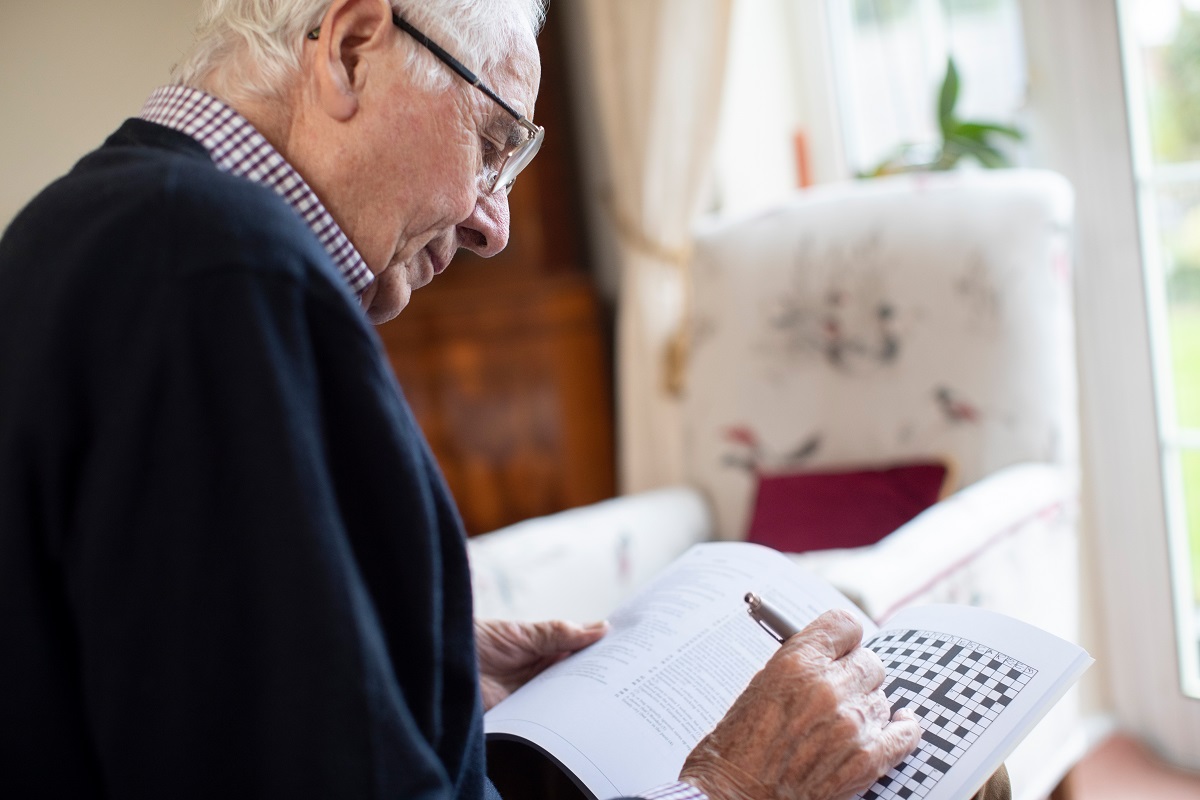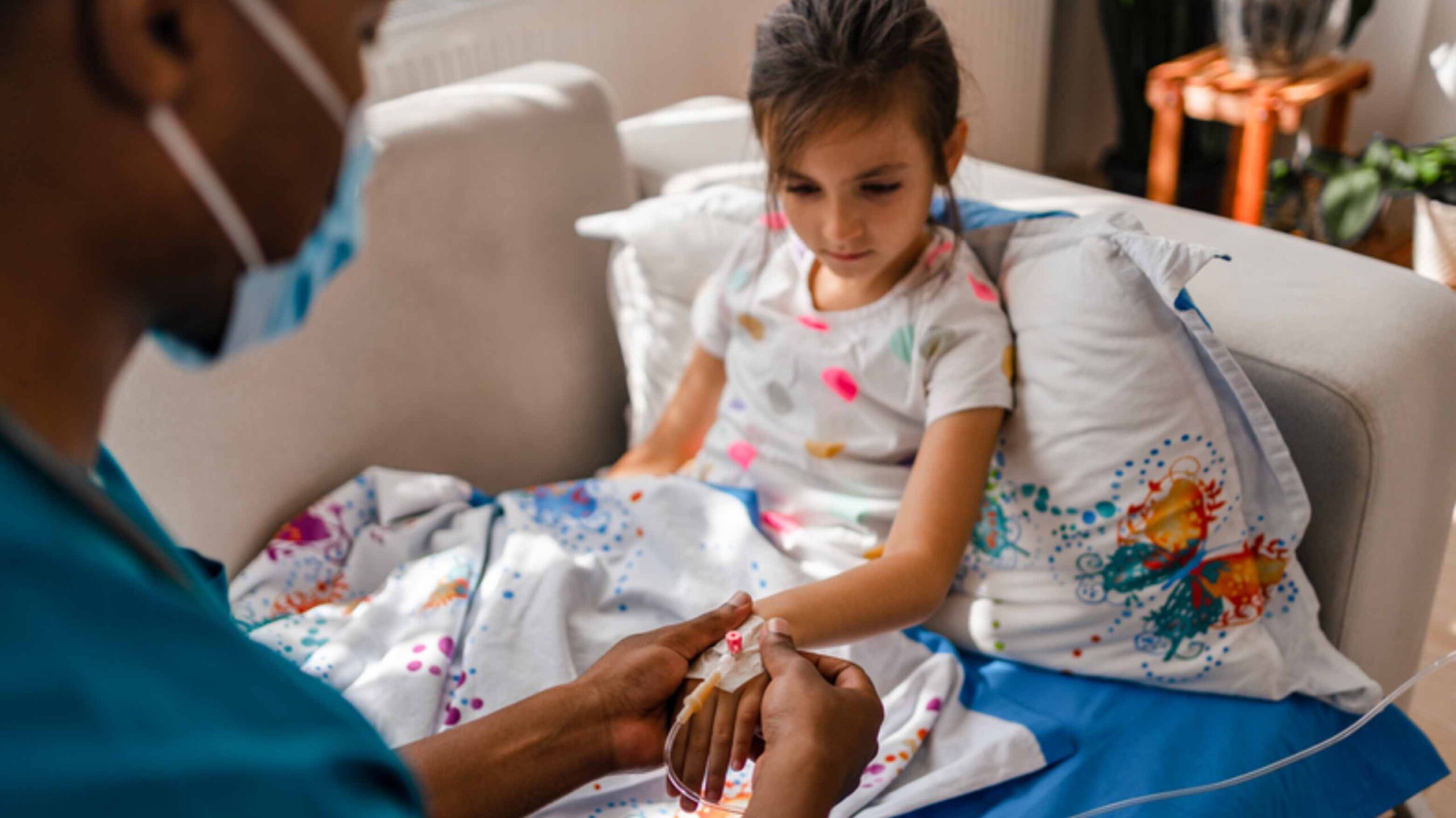Memory loss is a normal part of aging. While it’s not always a direct cause for concern, it can be a sign of dementia or Alzheimer’s disease. At Alliance Homecare, we understand it can be frustrating, upsetting, and sometimes embarrassing for the person experiencing it.
Impaired memory and forgetfulness are common among aging adults, but they aren’t necessarily inevitable. Some lifestyle changes and practices may help improve memory for seniors. Home health aide services, like Alliance Homecare, can provide support in this area. Here’s what you should know about how memory changes with age and what you can do to prevent and mitigate memory loss.
How Memory Changes with Age
It’s easy to see the signs of memory loss from the outside—whether it’s forgetting names, asking the same questions repeatedly, frequently misplacing things, misremembering facts, or missing appointments. While these behaviors can be upsetting for seniors and their loved ones, it can help to understand what’s going on inside the brain.
Some researchers believe humans reach their peak mental capacity in their twenties and gradually decline. When someone reaches their forties, the cortex begins shrinking, resulting in subtle memory changes.
Recent studies suggest that while some cognitive ability weakens with age, other brain functions may actually improve. For instance, “branching dendrites” increase as we get older, strengthening the connections between different areas of the brain. This makes some people better at comprehending complex ideas and seeing the “big picture.”
All that said, age is the biggest risk factor for brain disorders like Alzheimer’s disease, dementia, and brain cancer. Additionally, heart disease and diabetes, which are more common among seniors, can affect cognitive ability. Certain medications, hearing loss, and poor vision can be factors too.
These changes can result in memory lapses or problems retrieving information. Often described as being “on the tip of your tongue,” not being able to recall a name or a fact you used to know can be frustrating and disheartening, but there is hope for memory improvement.
Healthy Habits for Improving Memory in Seniors
The human brain is a complex organ. Though researchers are continuously making progress in figuring out the causes and potential treatments for cognitive decline, there’s still a lot we don’t know. Luckily, psychologists have found that certain behaviors may help aging adults remain sharp for as long as possible.
Healthy lifestyle changes like exercising more, eating a healthy diet, socializing, and getting enough sleep have shown to help with memory loss. Additionally, limiting unhealthy behaviors like drinking alcohol and smoking cigarettes may improve cognitive function. Beyond that, engaging in specific brain and memory exercises and learning new skills might be beneficial.
Exercise
Physical activity promotes blood flow throughout the entire body, including the brain. Research suggests that regular moderate physical exercise (such as taking daily brisk walks) can help preserve brain function among seniors. While a shrinking cerebral cortex is a normal part of aging, physical fitness is associated with an increased hippocampus (an extension of the cortex) and enhanced cognitive ability.
Nutrition
Nutrition plays a very important role in overall health at every age. Some evidence suggests dietary changes can delay the onset of dementia. Many common health conditions among seniors (such as diabetes, heart disease, and cardiovascular disease) are related to nutrition. Since these conditions can impact brain function, a healthy diet may improve memory.
Heart healthy foods for seniors rich in omega-3s like fish, nuts, seeds, and avocados can reduce blood pressure and are associated with healthy brain function. Legumes and whole grains are full of fiber and energizing complex carbohydrates. And fruits and vegetables are a great source of fiber, vitamins, and minerals.
Socialization & Companionship
Humans are social creatures, and the need to be around others doesn’t suddenly disappear with age. Spending time with friends and family encourages seniors to think of others, make an effort to remember plans, and introduces them to new ideas—especially those who live alone. Socializing and companionship can also help with mental health and reduce stress and depression, which are associated with memory loss. Alliance Homecare is happy to provide companionship services, and you can learn more about the importance of companionship for the elderly here.
Sleep
Sleep is a critical factor of mental and physical well-being. It’s important to get enough shut-eye (most people need between seven to nine hours a night) and go to sleep and wake up around the same time every day.
A recent study showed that variations in sleep time from night to night and lack of adequate sleep hinder aging adults’ ability to remember information.
Limiting Unhealthy Habits
In addition to implementing healthy habits, it may also help to reduce unhealthy behaviors (or quit them altogether). Heavy alcohol consumption can be associated with confusion, forgetfulness, and memory loss.
Not smoking cigarettes may be beneficial too. Evidence suggests that memory decline occurs quicker in aging adults who currently smoke than former smokers and people who have never smoked cigarettes.
Brain Exercises for Age-Related Memory Loss
Exercising regularly and eating a nutritious diet help keep you physically fit. Similarly, there are numerous ways to keep your mind in shape, like learning a new skill and engaging in various brain and memory exercises.
Learning a New Skill
Some older adults may feel like they’ve learned everything worth learning or that their days of education are over. However, it’s never too late to learn a new skill, and it can even help prevent age-related memory loss.
A study showed that the challenge of learning a skill—such as a new language, how to play an instrument, or how to bake pies—might delay or prevent cognitive decline or development of dementia.
Drawing Pictures
Drawing isn’t just for kids. It can be enjoyable at every stage of life—even in old age. Whether with colored pencils, crayons, or markers, drawing pictures takes fine motor skills and hand-eye coordination. Drawing images of past events or family members may also help with recollections.
Sudoku and Crossword Puzzles
Sudoku puzzles require logic, simple math, and some memorization. Similarly, crossword puzzles encourage you to recall facts and names while piecing clues together. These games are a great way to pass the time, and they’re also a fun way to keep the brain engaged.
The Importance of Regular Brain Engagement
Though memory loss and forgetfulness are more common among seniors, keeping the mind active may minimize mental decline. Whether with puzzles, board games, socialization, reading, drawing pictures, learning a new skill, or even playing games on a mobile device, regular brain engagement is vital for staying sharp.
Home Health Aides for Seniors with Memory Loss
If your loved one struggles with memory loss, dementia, or Alzheimer’s disease, Alliance Homecare’s home health aide services can provide support, guidance, and compassionate care. Our dedicated in home nurse care team has the knowledge and training to help your family member live a comfortable and dignified life at home.
A home health aide can help establish a daily routine, ensure dietary needs are met, make sure medications are taken properly, and maintain a safe living environment. Our team also offers companionship and moral support. We invite you to reference our other educational resources like medication management tips for seniors and transferring techniques for caregivers.
Contact us at Alliance Homecare to learn more about our New York City metro area services.
External sources:
- https://www.alzheimers.org.uk/get-support/staying-independent/using-technology-everyday-life?documentID=109
- https://www.health.harvard.edu/mind-and-mood/the-thinking-on-brain-games
- https://www.health.harvard.edu/newsletter_article/preserving-and-improving-memory-as-we-age
- https://www.mayoclinic.org/healthy-lifestyle/healthy-aging/in-depth/memory-loss/art-20046518
- https://www.nia.nih.gov/health/memory-forgetfulness-and-aging-whats-normal-and-whats-not
- https://www.apa.org/research/action/memory-changes
- https://www.nia.nih.gov/research/resource/advanced-cognitive-training-independent-and-vital-elderly-active
- https://www.apa.org/monitor/sep05/mending
- https://pubmed.ncbi.nlm.nih.gov/7843211/
- https://www.health.harvard.edu/mind-and-mood/how-memory-and-thinking-ability-change-with-age
- https://www.ncbi.nlm.nih.gov/pmc/articles/PMC7167375/
- https://www.nih.gov/news-events/nih-research-matters/moderate-exercise-may-improve-memory-older-adults
- https://www.bmj.com/content/369/bmj.m2269
- https://www.sciencedaily.com/releases/2019/06/190624111522.htm
- https://www.ncbi.nlm.nih.gov/pmc/articles/PMC2669791/





